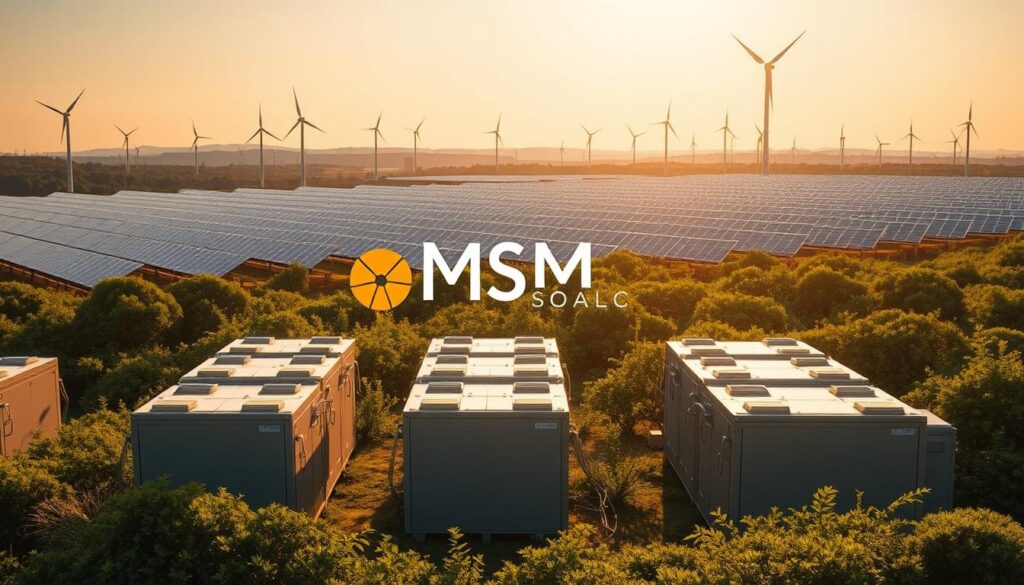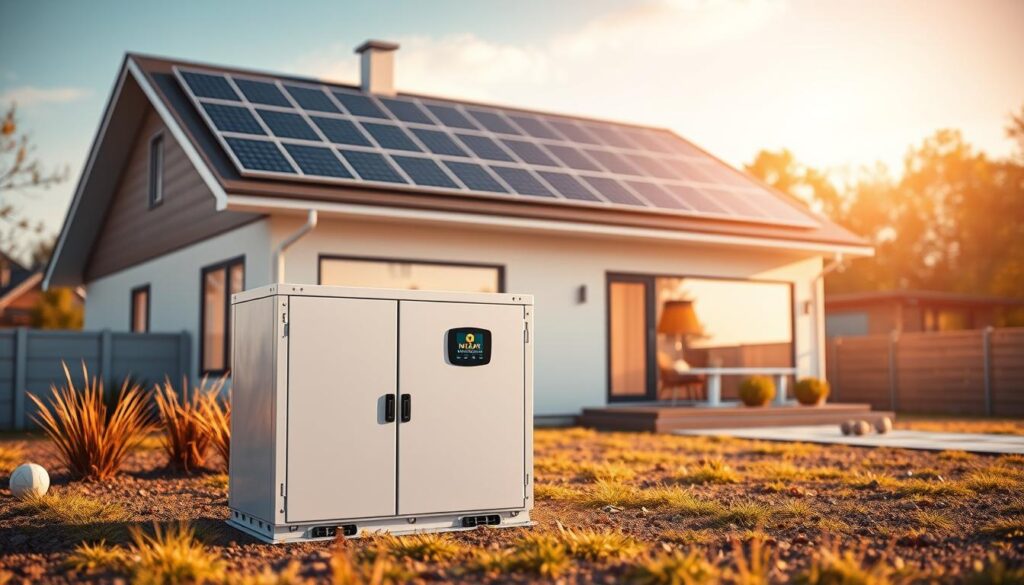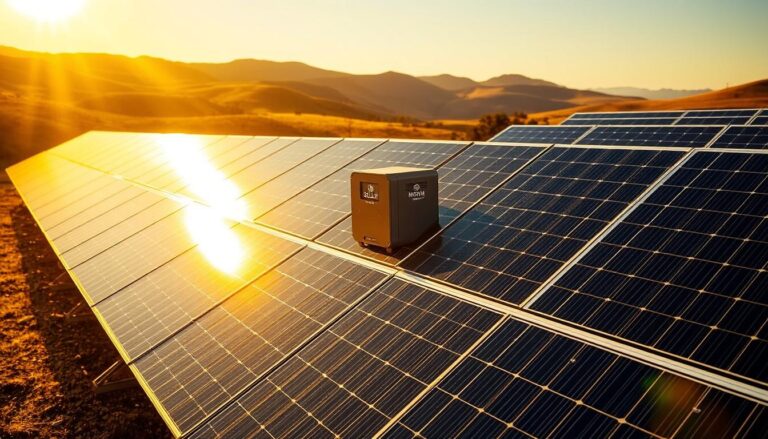Many homeowners wonder if their systems can store power for later use. The answer is simple: while these systems generate electricity, they don’t hold it on their own. To keep power available, additional components like batteries and inverters are needed.
At MSM Solar LLC, we’ve been serving Florida homes for over 15 years. Our NABCEP-certified installations are designed to withstand the unique challenges of the Sunshine State. From saltwater corrosion protection to 170mph wind ratings, we ensure your system is built to last.
Every system we install includes real-time monitoring and production guarantees. This means you’ll always know how much power you’re generating and using. Plus, with battery storage options, you can achieve true energy independence, even during outages.
Find Us Here:
Key Takeaways
- Solar panels generate electricity but don’t store it on their own.
- Batteries and inverters are essential for energy storage.
- MSM Solar LLC offers hurricane-rated systems with a 25-year warranty.
- Florida-specific engineering includes saltwater and wind protection.
- Real-time monitoring ensures optimal system performance.
- Battery storage provides energy independence during outages.
Can Solar Panels Store Energy? The Science Behind Solar Storage
Understanding how electricity is harnessed and stored is key to maximizing your system’s potential. While photovoltaic cells generate power, they don’t hold it. This is where additional components like batteries and inverters come into play.
How Solar Panels Generate (But Don’t Store) Energy
Photovoltaic cells convert sunlight into direct current (DC) electricity. This DC power is then sent to an inverter, which transforms it into alternating current (AC) for household use. However, without a storage solution, excess power is either sent back to the grid or goes unused.
The Role of Batteries and Inverters
Battery-backed systems allow you to save excess electricity for later use. At MSM Solar LLC, we use UL-listed batteries like Tesla Powerwall and Sonnen, which offer smart energy management. These systems ensure you have power during outages, like when a Tampa homeowner avoided an 8-hour blackout during Hurricane Idalia using a 13.5kWh battery.
Our SMA inverters are specifically designed to handle Florida’s humidity and rapid weather changes. Whether you choose a grid-tied or hybrid system, we ensure your setup is optimized for reliability and efficiency.
Key Benefits of Storing Solar Energy for Your Panhandle Florida Home
Living in Florida means being prepared for unpredictable weather and frequent power outages. With thunderstorms, hurricanes, and heatwaves straining the grid, having a reliable backup is essential. Storing excess solar energy not only keeps your home running during outages but also maximizes financial incentives and reduces your environmental impact.
Energy Independence During Power Outages
Florida averages eight utility outages each year, often during peak storm seasons. A solar battery ensures your home stays powered, even when the grid goes down. For example, during Hurricane Idalia, a Tampa homeowner avoided an 8-hour blackout using a 13.5kWh battery system. With MSM Solar LLC’s hurricane-rated designs, you can trust your system to withstand Florida’s toughest conditions.
Maximizing Financial Incentives Like Net Metering
Storing solar energy allows you to take full advantage of net metering. Instead of selling surplus power back to the utility at lower daytime rates, you can use it during peak hours (4pm-9pm) when rates are highest. This strategy not only saves money but also earns 1:1 credits, making your investment even more worthwhile. Plus, with MSM Solar LLC’s $0 down financing and 30% federal tax credit, going solar has never been more affordable.
Reducing Your Carbon Footprint
By storing and using your own solar energy, you significantly reduce your carbon footprint. A typical Florida home with a solar battery avoids emitting 8.2 metric tons of CO2 annually. That’s equivalent to planting over 190 trees! At MSM Solar LLC, we’re proud to help families in Pensacola and beyond reduce their bills by up to 92% while contributing to a cleaner planet.
Our exclusive partnerships with Florida Solar Loan and PACE programs make it easier than ever to invest in solar energy storage. With our BBB A+ rating and commitment to quality, you can trust MSM Solar LLC to deliver reliable, hurricane-resistant solutions tailored to Florida’s unique needs.
Solar Energy Storage Methods Explained
Exploring the different ways to keep your home powered is essential for modern living. From battery storage to large-scale solutions, there are multiple methods to ensure your solar energy is always available when you need it most.

Battery Storage: Lithium-Ion vs. Lead-Acid
When it comes to battery storage, two options dominate the market: lithium-ion and lead-acid. Lithium-ion batteries, like the Tesla Powerwall, offer a 10-year warranty and last 15-30 years. They’re efficient, compact, and ideal for homes in Florida’s humid climate.
On the other hand, lead-acid batteries are cheaper upfront but have a shorter lifespan of 3-5 years. They require more maintenance and aren’t as efficient. At MSM Solar LLC, we recommend lithium-ion options like the LG RESU, which are specifically designed to resist salt-air corrosion—perfect for coastal areas.
Thermal and Mechanical Storage for Large-Scale Use
For larger applications, thermal energy and mechanical storage solutions come into play. Pumped hydro, for example, costs around $165/kWh and is used in facilities like Babcock Ranch’s 10MW solar energy and storage project. These systems are ideal for utilities but aren’t practical for residential use.
Molten salt storage, often discussed in renewable energy circles, is another large-scale solution. While it’s effective for industrial applications, it’s not feasible for homes due to its complexity and cost. Instead, we focus on emerging technologies like graphene batteries, which we’re developing in partnership with UCF to bring cutting-edge solutions to Florida homeowners.
Whether you’re looking for a reliable battery storage solution or exploring large-scale options, MSM Solar LLC is here to guide you. Our expertise ensures your solar energy systems are efficient, durable, and tailored to your needs.
How Much Does Solar Battery Storage Cost?
Investing in reliable power solutions doesn’t have to break the bank. While the upfront cost may seem high, the long-term savings and available incentives make it a smart choice for Florida homeowners. Let’s break down the numbers to help you plan your investment.

Upfront Costs vs. Long-Term Savings
A typical solar battery storage system in Florida ranges from $15,000 to $25,000 before incentives. For example, a 10kWh system priced at $18,750 drops to $13,125 after the 30% federal tax credit. Over 10 years, homeowners can save up to $31,000 compared to relying solely on the utility grid.
With MSM Solar LLC’s $0 down options and 25-year warranty, your investment is protected. Plus, our price-lock guarantee shields you from rising utility rates, which increase by an average of 4.3% annually. Most clients break even in just 6-8 years, making it a financially sound decision.
Federal and Florida-Specific Incentives
Florida offers several incentives to make solar battery storage more affordable. The 30% federal tax credit is available until 2032, and Florida’s sales tax exemption further reduces the cost. Programs like Property Assessed Clean Energy (PACE) financing and net metering provide additional savings opportunities.
At MSM Solar LLC, we help you navigate these programs to maximize your benefits. Our ROI calculator ensures you see the full picture of your investment, from upfront costs to long-term savings. With our expertise, you can confidently make the switch to a more sustainable and cost-effective energy solution.
Choosing the Right Solar Storage System for Your Needs
Finding the perfect storage solution for your home involves understanding your unique needs and local conditions. In Florida, where storms and humidity are common, your system must be both reliable and durable. At MSM Solar LLC, we tailor every solution to ensure it meets your specific requirements.
Sizing Your Battery Bank for Florida’s Climate
Florida’s climate demands careful planning when sizing your battery backup. Most homes here need 2-3 days of backup power to stay safe during outages. A 10kWh system covers essentials like lights and refrigeration, while a 20kWh system powers your entire home.
Our 3-step sizing process ensures you get the right fit:
- Audit Usage: We analyze your energy consumption to understand your needs.
- Calculate Outage Needs: We factor in Florida’s frequent storms and outages.
- Optimize for TOU Rates: We help you save by aligning usage with peak and off-peak rates.
For example, homes in the Panhandle Florida often need 15% more capacity due to longer hurricane outage risks. Our interactive tool lets you input your address for hyperlocal recommendations.
Hurricane-Resistant and Saltwater-Proof Designs
Living in Panhandle Florida means preparing for extreme weather. Our hurricane-resistant designs are built to withstand Category 5 winds, thanks to wind-resistant mounting and marine-grade aluminum enclosures. We test every system in our Pensacola lab, simulating real-world conditions to ensure durability.
One standout example is a Destin beach house that survived 130mph winds with zero panel loss. Our saltwater-proof materials also protect against corrosion, making them ideal for coastal areas.
At MSM Solar LLC, we’re committed to providing solar systems that are as resilient as they are efficient. Whether you’re in Pensacola or Panama City, we’ve got you covered.
Conclusion: Secure Your Solar Investment with MSM Solar LLC
Securing your home’s future starts with the right solar investment. At MSM Solar LLC, we’re proud to offer a 25-year production guarantee, ensuring your solar systems perform at their best for decades. With a 94% client satisfaction rate and
Imagine waking up to a morning charge and using stored power at night—complete energy independence for your home. Now’s the time to act, as Florida’s net metering policies are under review. Lock in your rates today and take control of your power home needs.
Schedule your free home assessment now and receive a $500 credit when you mention this article. Our family has been serving Florida for three generations, and we’re ready to guarantee yours. Let’s build a brighter, more sustainable future together.




